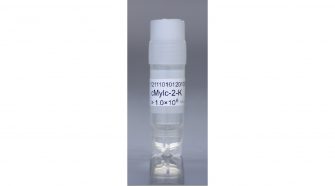Congenital heart disease is a risk factor in scuba diving, but this shouldn’t stop prospective divers from pursuing heart-pounding underwater action. If you were to live life once, would you allow a medical condition to get in the way of extreme adventure? Nevertheless, a sufferer will have to take the necessary precautions should he decide to get into the extreme sport despite the risk profile of a congenital heart disease. The article will briefly discuss pertinent risks and the mitigating factors necessary to contend with the physical limits of this cardiovascular condition.
- Physical Strain. Congenital heart disease patients are often advised to limit the pursuit of physically-straining activities and avert stressful circumstances as well. Since scuba diving is a strenuous sport, a sufferer will likely be advised to undergo extensive physical training weeks (or preferably months) before the scheduled dive in order to be in tip-top shape for the activity. But for your safety, be sure to get your health care provider involved in every step of the way.
- History of Surgical Procedure. If you’ve had undergone surgery before, you might want to think twice before engaging in a dive. Some chest surgery scars can restrict air flow, which will prove to be fatal when scuba diving. Consult your doctor for the likelihood of surgical scars to heighten related risks (as if having heart ailments isn’t risky enough), should you decide to pursue scuba diving nonetheless.
- Use of Artificial Pacemaker. Recreational diving depths can extend to as much as 40 meters. However, pacemakers could only sustain around 10 to 30 meters of underwater pressure. Therefore as a precautionary measure, confirm pertinent details with the manufacturer and determine exactly how much pressure your pacemaker can tolerate before proceeding with the dive.
- Heeding Doctor’s Advice. You can choose to conform with physician’s advice or just follow your heart’s desire and go scuba diving despite the looming risk of injury or even death. Be rest assured that your attending physician only wants what’s best for you. But if you happen to be dissatisfied with the medical practitioner’s recommendations, then seek for a second and then third opinion. And if these happen to convey similar recommendations, for your sake, please take heed and do not jeopardize your health or put your life on the line.
Nothing should ever stop you from living life to the fullest. And if you (and your doctor-LISTEN TO HIM, OK?) are unanimously convinced that you are physically fit to engage in any scuba diving activity, then go for it. And when you do, you might want to be geared up with top of the line scuba equipment such as an Aeris Coral Buoyancy Compensator with Air Link and a pair of Aeris Mako Open Heel Fins [http://www.scubasuppliers.com/site/1408308/product/50.30XX] to make your scuba diving trip much easier, safer and even more comfortable.
Source by Felix Tero

















